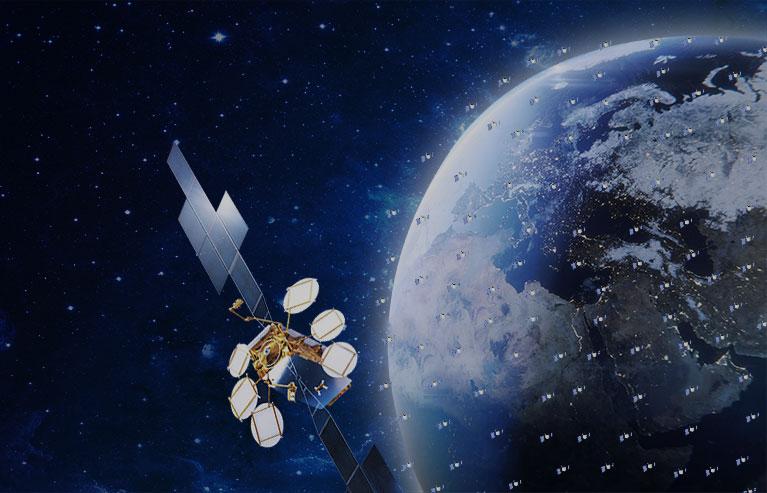France is set to strengthen its position in the satellite communications arena by increasing its stake in Eutelsat, a key player eyeing to rival SpaceX’s Starlink constellation. This strategic move comes as the French government seeks to bolster national and European capabilities in secure broadband connectivity and space-based defense infrastructure. With global competition intensifying in the deployment of mega-constellations for high-speed internet, France’s enhanced investment in Eutelsat signals a push to advance homegrown alternatives and assert greater autonomy in the rapidly evolving satellite communications sector.
France Increases Investment in Eutelsat to Counter Starlink Dominance
The French government is strategically increasing its financial commitment to Eutelsat, aiming to establish a robust alternative to the growing dominance of SpaceX’s Starlink in the satellite internet market. This move marks a decisive step towards preserving European sovereignty in satellite communications and reducing reliance on US-based providers amidst escalating geopolitical tensions. By bolstering Eutelsat’s infrastructure and innovation capacity, France hopes to leverage cutting-edge technology to offer competitive low-earth orbit (LEO) broadband services tailored for both civilian and defense applications.
Key objectives driving this investment include:
- Expanding Eutelsat’s satellite constellation to enhance global coverage and network resilience.
- Accelerating research and development in next-generation communication technologies within Europe.
- Securing strategic communications channels to safeguard national security interests.
| Aspect | France’s Focus | Expected Impact |
|---|---|---|
| Investment Amount | €250 million | Expand satellite deployments and tech upgrades |
| Timeline | 2024-2027 | Realize initial operational capacity for new services |
| Strategic Goal | Competitiveness vs. Starlink | Reduce European dependency on foreign internet satellites |
Strategic Implications for National Security and Sovereignty in Space Communications
France’s move to increase its stake in Eutelsat underscores a clear pivot toward securing autonomous capabilities in satellite communications. This strategic investment is not just about competing with global players like Starlink; it serves a broader national security agenda. By bolstering domestic control over critical infrastructure, France aims to safeguard sensitive data transmissions and ensure uninterrupted communications during geopolitical crises or conflicts. The reliance on foreign-operated satellite constellations poses vulnerabilities that could be exploited by adversaries, making sovereign-managed assets vital.
The implications extend beyond just defense readiness. A robust national satellite communication network enhances France’s geopolitical leverage and operational sovereignty in space. Key considerations include:
- Resilience against external interference: Mitigating risks such as signal jamming and cyber intrusions.
- Enhanced intelligence capabilities: Immediate control over data flows improves situational awareness and decision-making.
- Strategic independence: Reducing reliance on transnational satellite operators ensures France retains mission-critical autonomy.
| Aspect | Impact on National Security | Future Outlook |
|---|---|---|
| Sovereign Control | Protects communication channels from foreign disruptions | Increasing investments in national space assets |
| Technology Development | Promotes innovation with domestic oversight | Potential for European collaborative projects |
| Geopolitical Leverage | Strengthens position in international space policy | Enhanced diplomatic bargaining power |
Eutelsat’s Role in Enhancing European Satellite Capabilities
Eutelsat has solidified its position as a pivotal player in the European space sector, reinforcing satellite infrastructure critical for communication sovereignty. As France increases its investment stake, the company is expected to accelerate the deployment of next-generation satellites that offer advanced broadband and secure connectivity solutions across the continent. This moves France closer to establishing a homegrown alternative to global satellite internet providers, ensuring strategic independence in an increasingly competitive market.
Key advancements driven by Eutelsat include:
- Expansion of high-throughput satellite (HTS) technology to boost data capacity
- Enhanced integration with European defense and security networks
- Development of low Earth orbit (LEO) satellite constellations for reduced latency
- Collaborations with aerospace and telecom partners to foster innovation
| Capability | Impact | Deployment Timeline |
|---|---|---|
| Next-gen HTS | Increased broadband coverage | 2024-2026 |
| LEO constellations | Low latency communications | 2025 onwards |
| Defense network integration | Secure and resilient connectivity | Immediate |
Policy Recommendations for Strengthening France’s Position in the Global Satellite Market
To ensure France’s competitive edge in the increasingly crowded satellite market, policy measures must prioritize sustained innovation and strategic investments. Bolstering the government’s stake in Eutelsat represents a crucial step, but additional actions are needed to build a resilient ecosystem capable of challenging US-based giants like Starlink. Key recommendations include fostering robust public-private partnerships to enhance research and development, while incentivizing start-ups specializing in satellite technology and data services. Accelerated deployment of next-generation broadband satellites, combined with streamlined regulatory frameworks, would also serve to attract global capital and talent to French space ventures.
Moreover, reinforcing France’s leadership in European space initiatives, such as through close collaboration with the European Space Agency (ESA), remains essential. Policies must focus on scalable infrastructure expansion and secure, sovereign satellite communications to mitigate geopolitical vulnerabilities. Highlighting these priorities, the following action points should guide policymakers:
- Expand funding for satellite R&D with emphasis on low Earth orbit (LEO) constellations and groundbreaking propulsion systems.
- Enhance workforce development through specialized STEM education and cross-disciplinary training in aerospace and cybersecurity.
- Promote international partnerships to leverage technological advances and joint manufacturing capabilities.
- Implement adaptive regulatory policies that support rapid satellite deployment while safeguarding spectrum allocation and orbital debris management.
- Strengthen national security protocols to protect satellite assets from emerging cyber and physical threats.
| Policy Focus | Strategic Outcome |
|---|---|
| Increased R&D Funding | Technology Leadership & Innovation |
| Public-Private Collaboration | Enhanced Market Agility |
| Regulatory Reform | Swift Deployment & Safety |
| Workforce Development | Skilled Talent Pipeline |
| International Cooperation | Shared Resources & Global Reach |
Wrapping Up
As France moves to bolster its position in the satellite communications sector by increasing its stake in Eutelsat, the move signals a strategic effort to cultivate a homegrown alternative to dominant players like Starlink. This development underscores the growing importance of sovereignty and security in space-based connectivity, as nations seek to diversify their technological dependencies. With funding and political backing now strengthening Eutelsat’s capabilities, the satellite industry may witness heightened competition and innovation in the years ahead, reshaping the global landscape of broadband services from orbit. Defense News will continue to monitor these evolving dynamics as France pushes forward on this critical space frontier.




